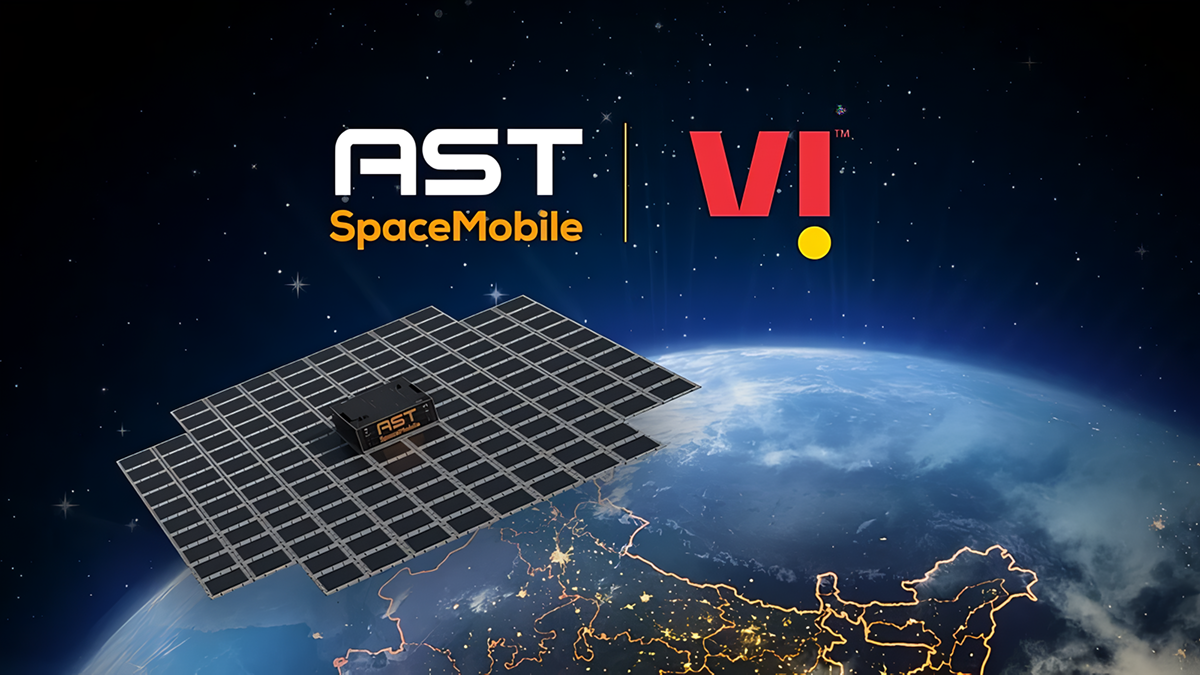Necessary Always Active
Necessary cookies are required to enable the basic features of this site, such as providing secure log-in or adjusting your consent preferences. These cookies do not store any personally identifiable data.
|
||||||
|
||||||
|
||||||
|

VI has taken a bold step into the satellite communications sector by announcing its partnership with AST SpaceMobile, a U.S. space technology company. According to Outlook Business, in a regulatory filing, the company said the partnership will merge Vi’s ground-based network with AST SpaceMobile’s satellite-powered cellular technology. This technology can connect directly to regular smartphones without requiring any special software, device changes, or updates.
The companies said, “This space-based cellular broadband ecosystem will be designed to extend Vi’s telecom services beyond terrestrial connectivity, offering voice, video, data streaming, and internet access. AST SpaceMobile will develop, manufacture, and operate the satellite constellation, while Vi will manage terrestrial network integration, spectrum usage, and market access.”
The tie-up between AST SpaceMobile and Vi represents a significant milestone for India’s third-largest telecom operator. Bharti Airtel and Reliance Jio have also announced plans to offer Satcom services in India. Airtel is partnering with Eutelsat OneWeb, while Jio has teamed up with Luxembourg-based SES.
This partnership comes at a crucial time when satellite internet services are gaining momentum worldwide. Companies like SpaceX’s Starlink and Amazon’s Project Kuiper have already demonstrated the potential of space-based internet connectivity, creating new opportunities for telecom operators.
Vi’s decision to collaborate with AST SpaceMobile reflects the company’s commitment to staying competitive in an evolving telecommunications landscape. The partnership allows Vi to leverage proven satellite technology without the massive capital investment required to develop such capabilities independently.
Through this collaboration, Vodafone Idea Satcom services will offer customers access to high-speed internet connectivity even in remote areas. This expansion addresses a significant gap in India’s digital infrastructure, particularly in rural and underserved regions.
The satellite services will complement Vi’s existing 4G and 5G networks, creating a comprehensive connectivity solution for customers across different geographical locations. This integrated approach positions Vi to serve both urban and rural markets effectively.
Rural connectivity has been a persistent challenge for telecom operators in India due to geographical constraints and infrastructure costs. Satellite-based solutions offer a practical way to bridge this digital divide while maintaining commercial viability.
Vi’s satellite broadband initiative in India aims to meet the growing demand for reliable internet services nationwide. With increasing digitalization and remote work trends, consumers and businesses are seeking connectivity solutions that work regardless of location.
India’s vast geography includes many areas where traditional broadband infrastructure is either unavailable or unreliable. Satellite internet services can provide consistent connectivity to these underserved regions, opening new revenue streams for Vi.
The partnership also positions Vi to compete with international satellite internet providers who are eyeing the Indian market. Having a local telecom operator partnership gives AST SpaceMobile better access to Indian customers and regulatory approval processes.
Vi’s internet services will utilize AST SpaceMobile’s advanced satellite constellation technology. These satellites are designed to work directly with standard mobile phones, eliminating the need for special equipment or modifications.
This direct-to-device capability represents a significant technological advantage over traditional satellite internet services that require dedicated terminals or dishes. Customers can access satellite connectivity using their existing smartphones when cellular networks are unavailable.
The implementation will be gradual, starting with pilot programs in select regions before expanding to broader coverage. This phased approach allows both companies to refine the service and address any technical challenges before full-scale deployment.